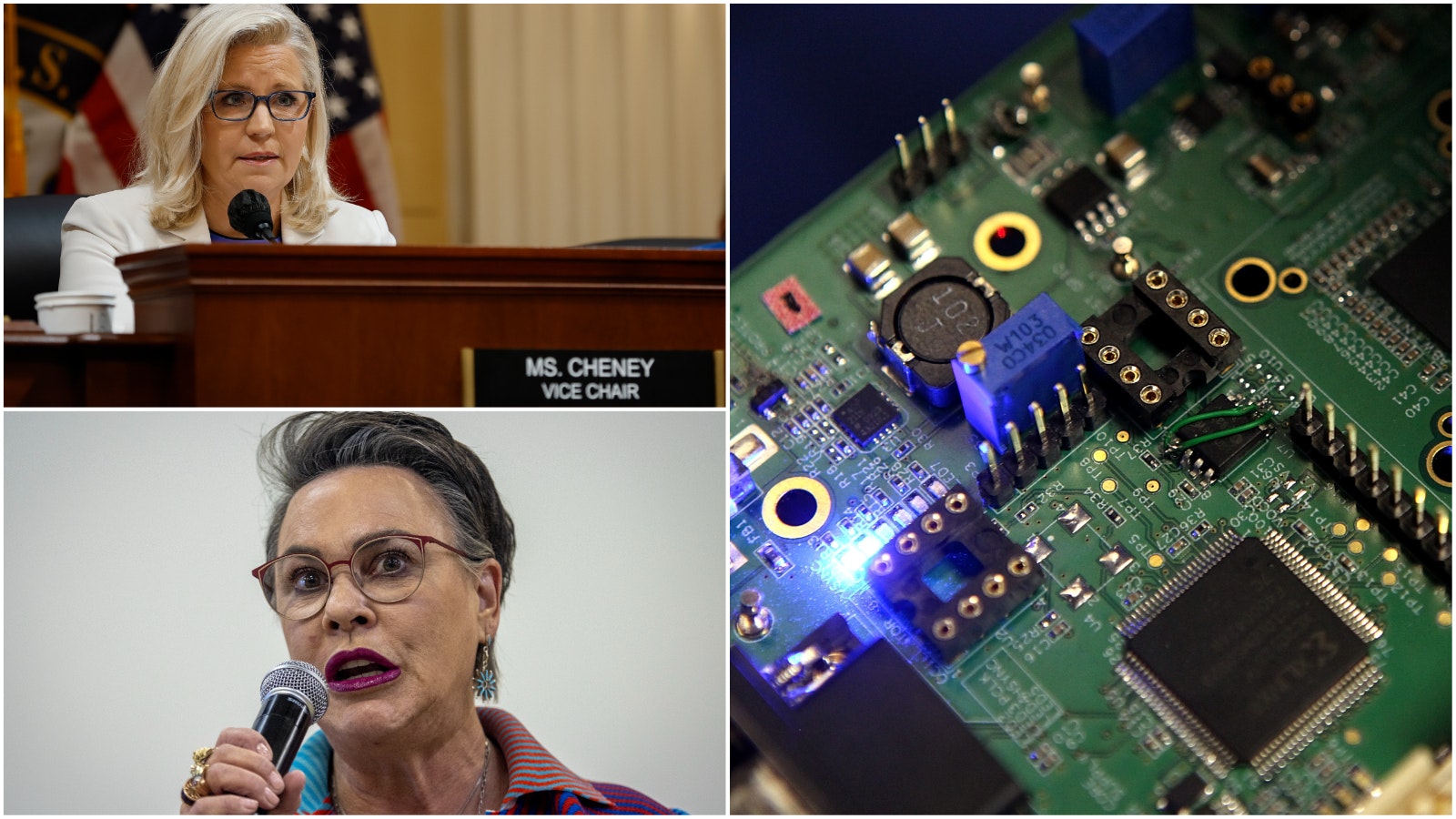U.S. House candidate Harriet Hageman lashed out against incumbent Rep. Liz Cheney about her Thursday vote to support a bill subsidizing American-made semiconductor chips.
“It’s fitting that a globalist like Liz Cheney would join Democrats in backing this massive $280 billion piece of legislation which will actually send American tax dollars to China,” Hageman said in a Thursday press release. “The bill contains no guarantees that we will see a return on the money spent and allows companies to use our tax dollars to build plants in Communist China.”
Included in the legislation are provisions that would prohibit companies from building most, but not all, types of new semiconductor manufacturing facilities in China “or any other foreign country of concern” for a decade after receiving federal funding.
The CHIPS and Science Act of 2022 provides $52 billion for U.S. microchip manufacturers to invest in semiconductor fabrication plants to make the chips, used in a wide variety of products like cars, cellphones, medical equipment and military weapons. The coronavirus pandemic has caused a shortage of the semiconductor chips, leading to supply chain disruptions to a variety of goods.
A spokesman from Rep. Cheney’s office brushed off the criticism from Hageman and said the legislation “directly combats the Chinese Communist Party’s malign activity” and actually boosts domestic manufacturing and production of the U.S. semiconductor industry.”
“Through multiple means, the CCP has attempted to hijack this industry and put the U.S. at a disadvantage,” said Cheney spokesman Mike Sullivan. “This legislation is critical to increasing the manufacture of these important microchips at home, which is good for our economy, helps improve our supply chains, and makes us less reliant on one of our adversaries for such an important product.”
The bill is expected by many in the tech industry to help bring down costs of tens of thousands of consumer products. The U.S. has invested very little in this technology, while China has invested $150 billion in the industry, according to Commerce Secretary Gina Raimondo at a White House meeting on Monday.
The bill is intended to allow America to compete more effectively with China in the sector by incentivizing semiconductor companies to build their factories in the U.S. There are 94 plants currently operating in America.
As of late 2021, there were about 102,000 semiconductor and circuit manufacturing employees in the U.S., according to Fierce Electronics.
Also included in the bill is $100 billion over five years to expand the National Science Foundation and establish regional technology hubs to support start-ups in parts of the country less known for tech production.
Within that piece of legislation is the establishment of a chief diversity officer and fast-tracking for government-funded climate-change research.
The bill passed with a 243-187 vote in the House. Cheney was one of 24 Republicans to vote for the legislation that is supported by President Joe Biden’s administration.
“While inflation is out of control, the country is $30 trillion in debt, and Joe Biden plans to spend even more to make matters worse, a giveaway to the Communist Chinese is about the dumbest idea yet,” Hageman said.
Both Sens. John Barrasso and Cynthia Lummis voted against the bill. Also voting against it was former Democratic presidential candidate Bernie Sanders, I-Vt.
“People in Wyoming are struggling to make ends meet due to wasteful government spending that’s driving up inflation,” Lummis said in a Wednesday post on Twitter. “While I support doing everything we can to stay competitive with China, we don’t need to give billions of taxpayer dollars to private companies amidst record-breaking inflation.





